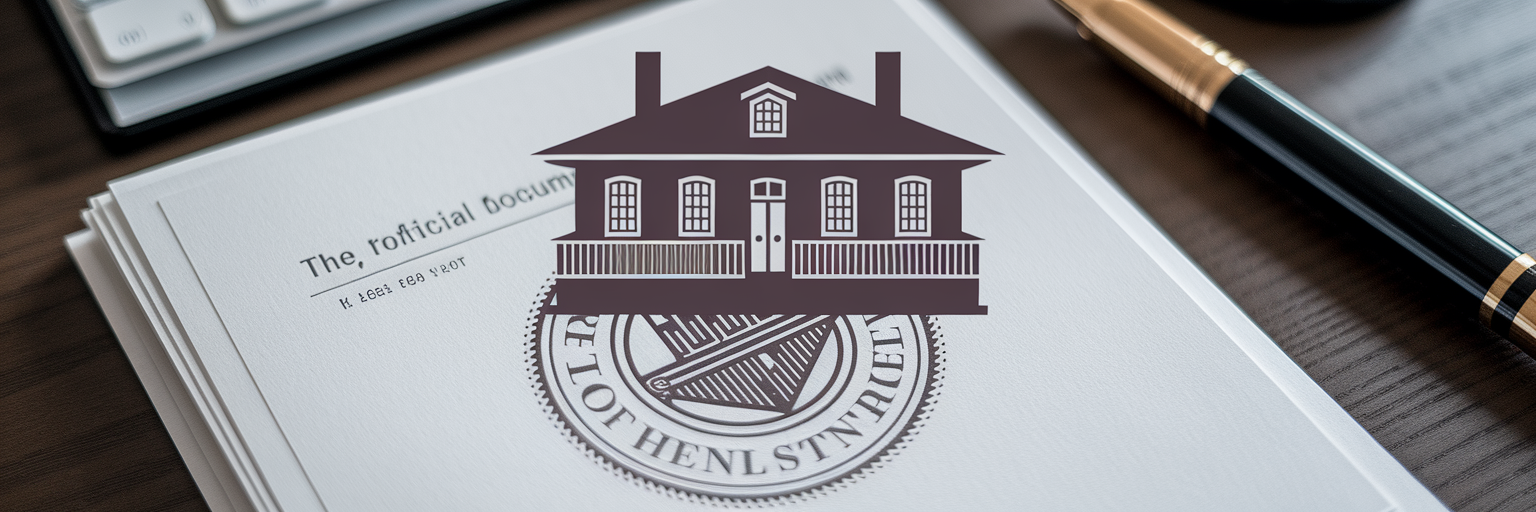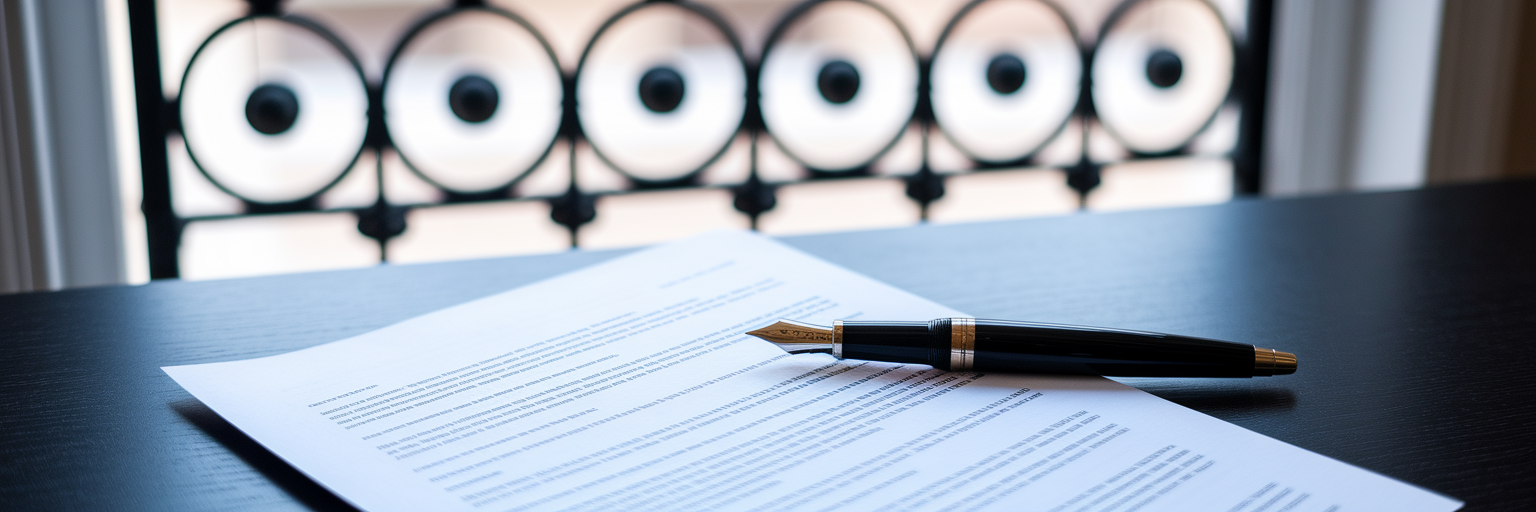Securing Your Louisiana Property Deal with a Notary

Buying property is one of the most significant financial commitments you will ever make. In Louisiana, the integrity of that commitment rests heavily on a key professional. Unlike in most other states where a notary is often just a final checkpoint for a signature, a Louisiana notary public is a central legal figure involved throughout the process. Their role is not a mere formality but a foundational element that ensures security for everyone involved.
This distinction is critical for anyone involved in real estate transactions Louisiana. Understanding the notary's unique responsibilities clarifies how your investment is protected. We will explore why notarization is essential, detailing the specific documents and processes that safeguard buyers, sellers, and lenders from start to finish.
Louisiana's Unique Civil Law Notary System
So, why does a notary hold so much authority here? The answer lies in Louisiana's unique civil law tradition, a heritage from its French and Spanish roots that sets it apart from the common law system used in the other 49 states. This background grants a Louisiana notary public powers that go far beyond simply witnessing a signature. According to the Louisiana Secretary of State, these notaries must pass a rigorous exam covering state-specific laws.
This specialized training allows them to do something their counterparts in other states cannot: draft and prepare the legal documents themselves. A Louisiana notary can write the Act of Sale, prepare mortgage agreements, and ensure every document complies with the state's intricate property statutes. They act as a neutral legal expert for the transaction, providing a degree of certainty that helps prevent future disputes over ownership or title.
Think of it this way: while a common law notary is like a security guard verifying an ID at the door, a Louisiana civil law notary is more like the architect who designed the building, ensuring its structural integrity from the ground up. This system provides a robust legal safeguard for your property deal. You can find more information about these specialized local notary services that uphold this standard.
Key Documents That Require Notarization
Navigating a property sale involves a stack of paperwork, and knowing which documents require notarization is essential. In Louisiana, several key instruments must be executed before a notary to be legally valid. Here are the most common ones:
- The Act of Sale (Property Deed): This is the single most important document in the transaction. It officially transfers ownership from the seller to the buyer. As defined by Louisiana Civil Code, this transfer of immovable property must be executed before a notary and two witnesses to be legally binding. You can review the specific legal requirements in the Louisiana Civil Code article 1839.
- Mortgage and Loan Documents: When a loan is involved, the lender requires the mortgage agreement to be notarized. This act secures their financial interest in the property and makes their lien legally enforceable if the borrower defaults.
- Power of Attorney (Mandate): If one of the parties cannot be present at the closing, they can appoint someone to sign on their behalf using a Power of Attorney. Notarization verifies that this authority was granted legitimately and without coercion.
Other documents, like affidavits of heirship, may also need notarization to clear a property's title before a sale. Each notarized signature adds a layer of legal certainty to the transaction.
| Document Name | Primary Purpose | Why Notarization is Critical |
|---|---|---|
| Act of Sale (Property Deed) | Officially transfers property ownership | Makes the transfer legally binding and recordable. |
| Mortgage Agreement | Secures the lender's loan against the property | Ensures the lender's lien is legally enforceable. |
| Power of Attorney (Mandate) | Grants signing authority to another person | Verifies the authority is legitimate and freely given. |
| Affidavit of Heirship | Establishes rightful heirs to a property | Clears the title before a sale can proceed. |
Note: This table highlights the most common documents requiring notarization in a Louisiana property sale. Other documents may be necessary depending on the specifics of the transaction.
Preventing Fraud and Ensuring Legal Compliance
Beyond drafting documents, the notary serves as the first line of defense against fraud at the closing table. This active role is crucial for maintaining the integrity of property records and preventing the types of scams highlighted by agencies like the FBI. A professional real estate closing notary performs several key functions to protect all parties:
- Identity Verification: The notary must positively identify every signatory by checking a valid, government-issued photo ID. This simple step prevents impersonation and ensures the person signing the document is who they claim to be.
- Confirming Willingness and Awareness: It is the notary’s duty to ensure that all parties are signing willingly and without being under duress. They also confirm that the signers understand the nature of the document they are executing. We have all felt that moment of hesitation before a big signature; the notary is there to provide clarity and confidence.
- Creating a Public Record: Once signed, the notary’s signature and seal transform the document into an official act. When the Act of Sale is filed with the parish Clerk of Court, it creates a permanent, public record of the transfer, establishing a clear chain of title that protects the new owner from future claims.
This formal process is why choosing a trustworthy and competent notary is so important for legal compliance. For reliable services that prioritize security, you can learn more at our main website.
Your Partner in Finalizing the Transaction
Ultimately, a Louisiana notary is more than just a functionary; they are an impartial expert responsible for guiding the transaction to a secure and legally sound conclusion. Their involvement is a fundamental protection built into the state’s legal framework, ensuring your property rights are clear and defensible. Competence and convenience are paramount when you reach this final step.
That is why having access to a professional who understands the nuances of Louisiana property law is so valuable. At JP Notary, we bring that expertise directly to you. Our mobile notary New Orleans service simplifies the closing process by meeting you at your home, office, or another convenient location. We provide professional and reliable services to notarize a property deed Louisiana, handling closings across New Orleans and as a trusted Jefferson Parish notary.
For a smooth and secure closing, contact JP Notary at (504) 513-7333 to schedule an appointment. For our Spanish-speaking clients, dedicated services are also available through our Spanish language portal. Need a mobile notary? JP Notary comes to you.
Need Professional Notary Services?
Contact JP Notary for reliable, professional notary services in New Orleans.

